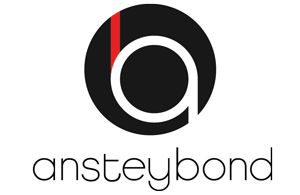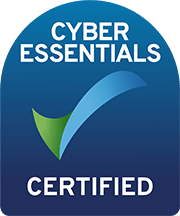Coronavirus Job Retention Scheme (CJRS)
The furlough scheme is extended to September 2021 across the UK. So, employers will still be able to claim if they remain adversely affected by coronavirus at 80% of the current salary for hours not worked, until July.
In July, the government will introduce an employer contribution towards the cost of unworked hours of 10% in July, 20% in August and 20% in September, as the economy reopens.
Self-employment Income Support Scheme (SEISS)
The Chancellor announced an extension of the Self Employment Income Support scheme to September 2021, with 600,000 more people able to claim for the first time.
The newly self-employed are included in this figure, but they must have filed their 2019/20 tax return by midnight on 2 March 2021.
The fourth SEISS grant will be worth 80% of three months’ average trading profits, paid out in a single instalment and capped at £7,500 in total. The grant will cover the period February to April 2021 and can be claimed from late April.
The fifth grant is to cover May to September. The value of the grant will be determined by a turnover test. Turnover must have fallen by 30% to continue to receive the full grant worth 80% of three months’ average trading profits, capped at £7,500. Where turnover has fallen by less than 30%, a 30% grant will be received, capped at £2,850. The final grant can be claimed from late July.
Corporation tax rate
The rate of corporation tax will increase from April 2023 to 25% on profits over £250,000. The rate for small profits under £50,000 will remain at 19%.
Businesses with profits between £50,000 and £250,000 will be entitled to marginal small companies relief at the rate of 3/200 of the difference between the profits and the Upper Limit of £250,000.
Loss relief
Many companies will have made losses during the Covid-19 pandemic, and additional relief is provided for loss-making business in the form of an extended three year carry back for up to £2m of losses per group in each of the financial years 2020/21 and 2021/22.
Super deduction
A new “super deduction” of 130% of capital expenditure on new qualifying plant and machinery will apply from 1 April 2021 to 31 March 2023.
The 130% deduction applies to assets which would be eligible for the main pool capital allowances rate of 18%. Expenditure on new special rate pool assets will benefit from a 50% first year allowance. The super deduction is in addition to the extension of the AIA limit of £1m until 31 December 2021.
Recovery Loan Scheme
The Recovery Loan Scheme ensures businesses of any size can continue to access loans and other types of finance up to £10 million per business once the existing COVID-19 loan schemes close, providing support as businesses recover and grow following the disruption of the pandemic and the end of the transition period.
Once received, the finance can be used for any legitimate business purpose, including growth and investment.
The government guarantees 80% of the finance to the lender to ensure they continue to have the confidence to lend to businesses.
The scheme launches on 6 April 2021 and is open until 31 December 2021, subject to review. Loans will be available through a network of accredited lenders, whose names will be made public in due course. The scheme will be open to all businesses, including those who have already received support under the existing COVID guaranteed loan schemes.
Restart Grants
The government will provide “Restart Grants” in England of up to £6,000 per premises for non-essential retail businesses and up to £18,000 per premises for hospitality, accommodation, leisure, personal care and gym businesses. This fund will replace the current monthly grant system administered by the local authorities.
VAT
The government will extend the temporary reduced rate of 5% VAT for goods and services supplied by the tourism and hospitality sector until 30 September 2021. To help businesses manage the transition back to the standard 20% rate, a 12.5% rate will apply from 1 October 21 to 31 March 2022.
Any business that took advantage of the VAT deferral on VAT returns from March 20 to June 20 can now opt to use the VAT Deferral New Payment Scheme to pay the deferred VAT in up to 11 equal instalments from March 21, rather than one payment due by 31 Mar 21, as originally announced.
Business Rates Relief
The government will continue to provide eligible retail, hospitality and leisure properties in England with 100% business rates relief from 1 April 2021 to 30 June 2021. This will be followed by 66% business rates relief for the period from 1 July 2021 to 31 March 2022, capped at £2 million per business for properties that were required to be closed on 5 January 2021, or £105,000 per business for other eligible properties.
This £2m cap applies only to the extended carry back, ie there is no change to the unlimited carry back of losses to the previous 12 month accounting period.
Apprenticeships
The government will extend and increase the payments made to employers in England who hire new apprentices. Employers who hire a new apprentice between 1 April 2021 and 30 September 2021 will receive £3,000 per new hire. This is in addition to the existing £1,000 payment the government provides for all new 16-18 year old apprentices and those aged under 25.
Personal Allowance and higher rate threshold (HRT):
The income tax Personal Allowance will rise to £12,570 from April 2021 and will remain at this level until April 2026. The income tax HRT will rise as to £50,270 from April 2021 and will remain at this level until April 2026.
We are ourselves issuing regular updates via our website and e-mail cannons. If you are not receiving these and would like to be added to the list please e-mail [email protected] with the subject “Add me to your COVID-19 e-mails”


